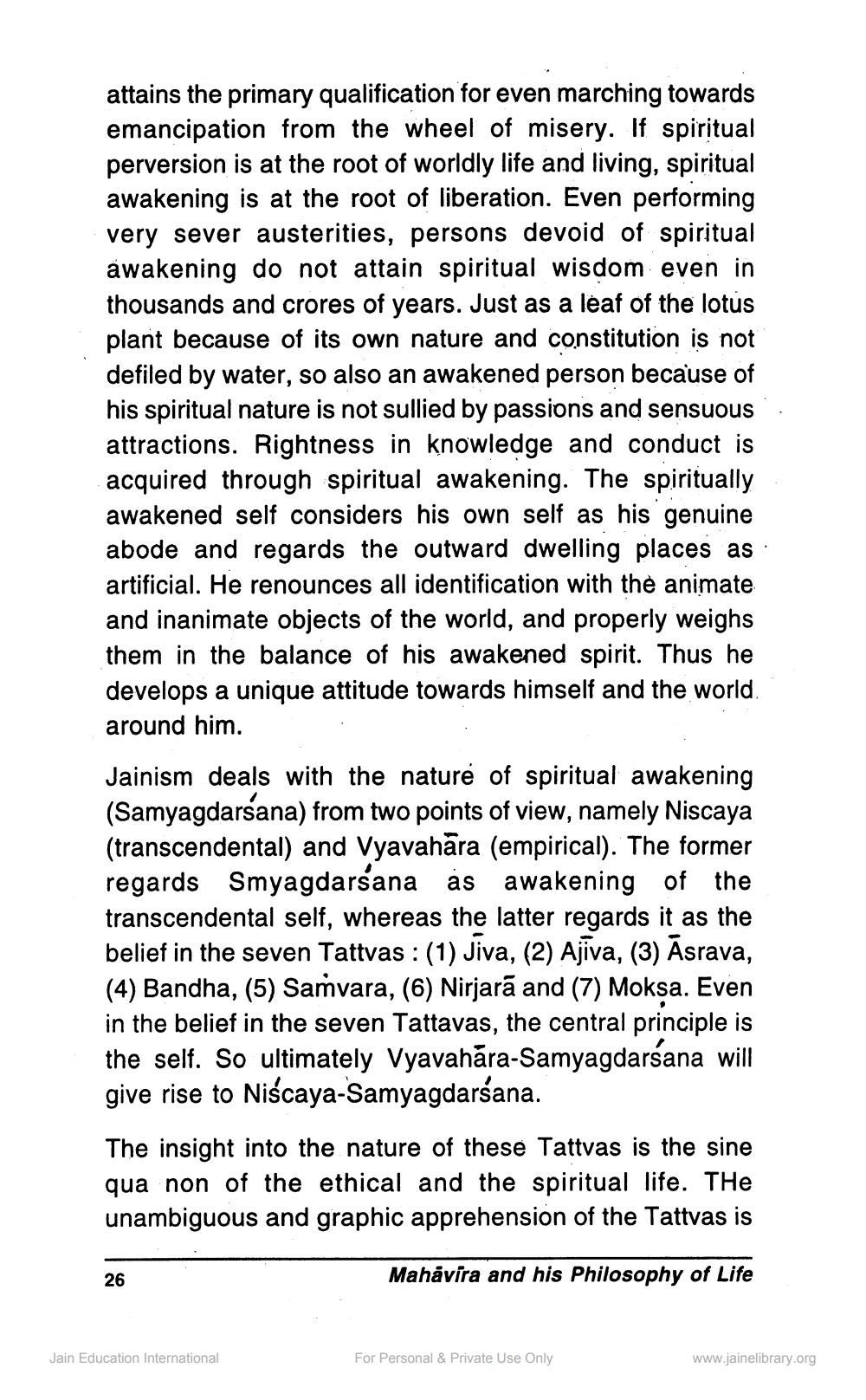________________
attains the primary qualification for even marching towards emancipation from the wheel of misery. If spiritual perversion is at the root of worldly life and living, spiritual awakening is at the root of liberation. Even performing very sever austerities, persons devoid of spiritual awakening do not attain spiritual wisdom even in thousands and crores of years. Just as a leaf of the lotus plant because of its own nature and constitution is not defiled by water, so also an awakened person because of his spiritual nature is not sullied by passions and sensuous attractions. Rightness in knowledge and conduct is acquired through spiritual awakening. The spiritually awakened self considers his own self as his genuine abode and regards the outward dwelling places as artificial. He renounces all identification with the animate and inanimate objects of the world, and properly weighs them in the balance of his awakened spirit. Thus he develops a unique attitude towards himself and the world, around him.
Jainism deals with the nature of spiritual awakening (Samyagdarsana) from two points of view, namely Niscaya (transcendental) and Vyavahara (empirical). The former regards Smyagdarsana as awakening of the transcendental self, whereas the latter regards it as the belief in the seven Tattvas : (1) Jiva, (2) Ajiva, (3) Asrava, (4) Bandha, (5) Samvara, (6) Nirjarā and (7) Moksa. Even in the belief in the seven Tattavas, the central principle is the self. So ultimately Vyavahara-Samyagdarsana will give rise to Niścaya-Samyagdarśana.
The insight into the nature of these Tattvas is the sine qua non of the ethical and the spiritual life. THE unambiguous and graphic apprehension of the Tattvas is
26
Mahavira and his Philosophy of Life
Jain Education International
For Personal & Private Use Only
www.jainelibrary.org




